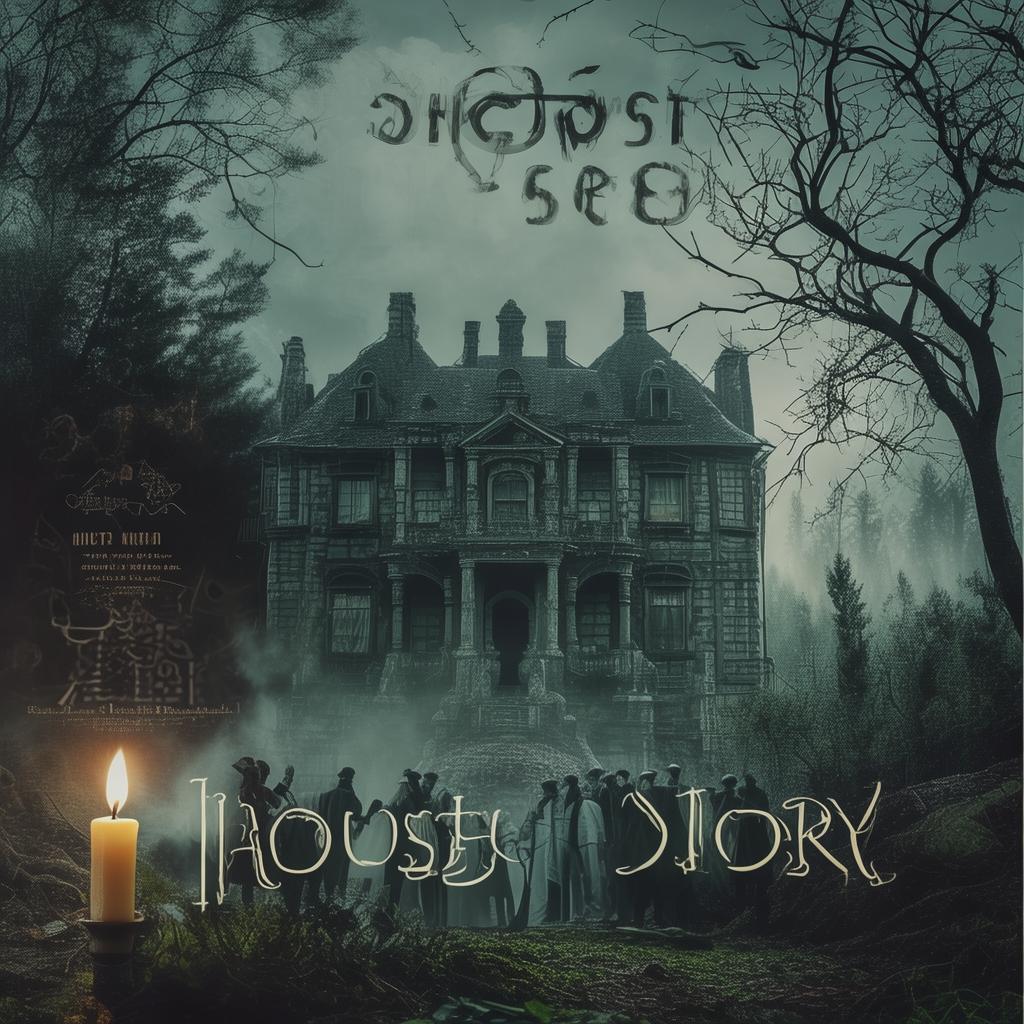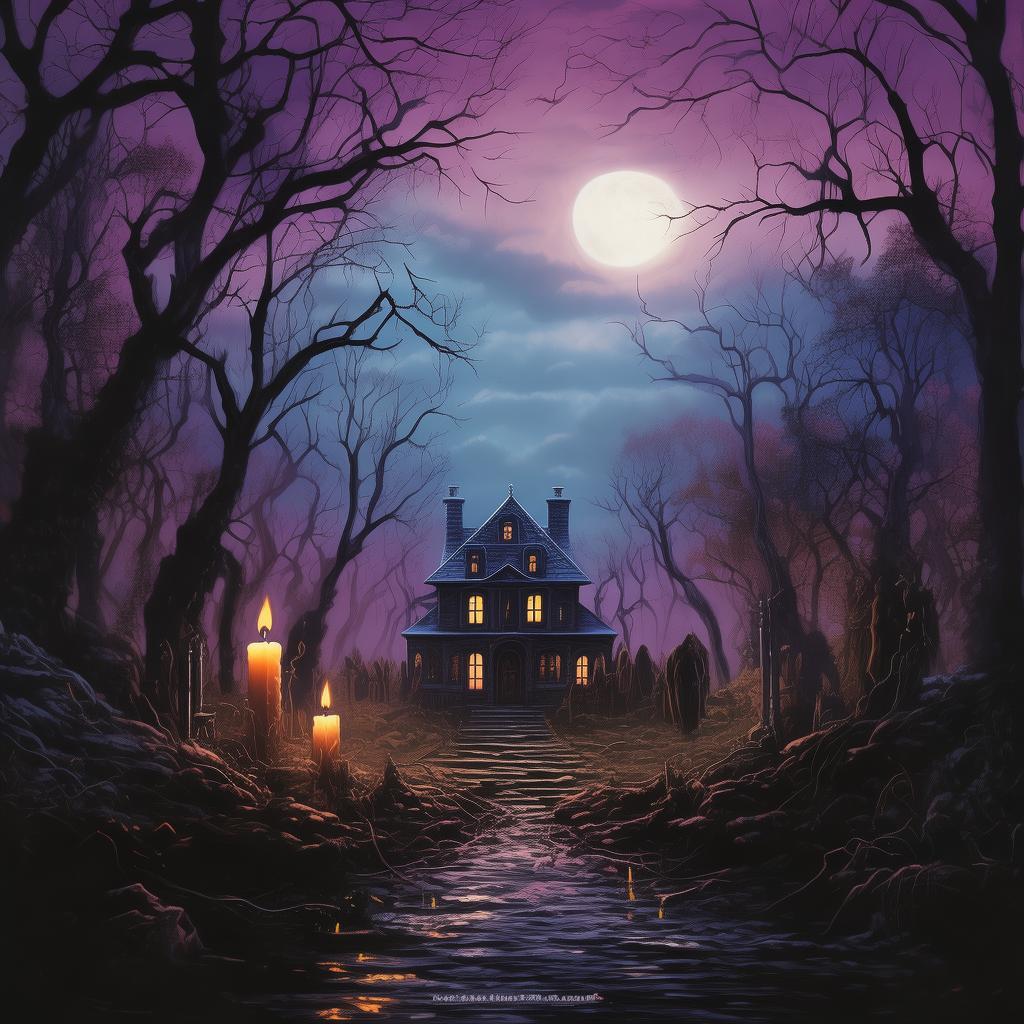The Lurking Legacy of the Laughing Monk
In the heart of the ancient Chinese town of Jingli, there stood an old temple, its bell tower silent against the twilight sky. The temple, known as the Temple of the Serene Monk, was a place of solace and contemplation for many, save for one particular figure whose legend had grown into a whisper of dread among the locals.
The monk, known to all as Master Hua, was said to have been a great scholar and a profound mystic. His teachings were revered, but it was his laughter that echoed through the temple walls, a sound that could make the strongest man tremble. It was said that the laughter was not of joy, but of a man who had seen the darkest depths of the human soul.
The story of Master Hua began in the waning days of the Ming Dynasty. A young monk named Hua had taken up residence in the temple, drawn by the tales of the temple's ancient roots and the wisdom of its inhabitants. He was soon to learn that wisdom came with a heavy price.

Hua's days were spent in meditation and study, but his nights were haunted by the sound of laughter that seemed to come from nowhere and everywhere. The laughter was strange, almost musical, and it would wake him from his deepest slumber. Over time, Hua's curiosity turned to fear, and he began to suspect that the laughter was not his own.
One evening, as the moon hung low in the sky, Hua decided to seek the source of the laughter. He ventured into the forbidden quarters of the temple, places that had been locked away for centuries. There, in the heart of the temple, he found an ancient, dust-covered scroll, its edges worn and frayed. The scroll was covered in cryptic symbols and strange runes that Hua could not decipher.
As he read the scroll, Hua felt the laughter growing stronger, as if the very air was being twisted by the sound. The scroll spoke of a legacy, a legacy of laughter that had been passed down through generations of monks. It was a legacy that held a dark secret, one that could only be unlocked by the monk who could laugh the loudest and longest.
Determined to uncover the truth, Hua began to train himself to laugh, to find the depth of his soul that could match the laughter of the past. He meditated, he practiced, and he pushed his body and mind to the brink of sanity. But as his laughter grew, so did the sense of dread that consumed him.
One night, as Hua laughed, the laughter seemed to take on a life of its own, transcending the walls of the temple and reaching out to the world beyond. It was then that Hua realized the true nature of his legacy. The laughter was not just a sound, but a force, a force that could bind and unbind the souls of those who dared to challenge it.
The next morning, the temple was filled with the sound of laughter, not Hua's, but the laughter of a thousand monks who had come before him. The laughter was now a part of the temple, a part of the land, and it called out to those who would dare to challenge it.
The story of Master Hua spread through Jingli, and those who heard it spoke of the laughing monk's legacy with a mixture of fear and respect. Some said that the laughter could be heard on the wind, while others claimed to see the ghostly figure of the monk, his eyes filled with a strange, knowing laughter.
Years passed, and the temple fell into disrepair, but the laughter remained. It was said that those who entered the temple at night would hear the sound of laughter, a sound that could drive a man to madness or to the depths of his soul. Some claimed that the laughter was a warning, a reminder that not all secrets should be sought.
In the heart of Jingli, a new generation of monks had taken up residence in the Temple of the Serene Monk. They had heard the tales of the laughing monk and the legacy of laughter that he had left behind. They knew the danger that lay within the temple, but they also knew that the laughter was a part of their heritage, a part of their destiny.
One night, a young monk named Jing, driven by curiosity and a desire to understand the past, decided to venture into the forbidden quarters of the temple. He carried with him the legacy of Master Hua, the scroll of laughter, and a determination to uncover the truth.
As Jing read the scroll, the laughter began to grow, stronger and more insistent. He felt the force of the legacy around him, a force that threatened to consume him. But he pressed on, driven by a need to understand the man who had become the laughing monk.
And so, the laughter continued, echoing through the temple, intertwining with the lives of those who dared to uncover the truth behind the enigmatic legacy of the laughing monk. The laughter was a reminder of the past, a warning of the future, and a challenge to those who sought to understand the mysteries of the human soul.
In the end, the laughter of the laughing monk was not just a sound, but a legacy, a legacy that would be passed down through generations, a legacy that would continue to challenge and captivate those who dared to seek the truth.
✨ Original Statement ✨
All articles published on this website (including but not limited to text, images, videos, and other content) are original or authorized for reposting and are protected by relevant laws. Without the explicit written permission of this website, no individual or organization may copy, modify, repost, or use the content for commercial purposes.
If you need to quote or cooperate, please contact this site for authorization. We reserve the right to pursue legal responsibility for any unauthorized use.
Hereby declared.









